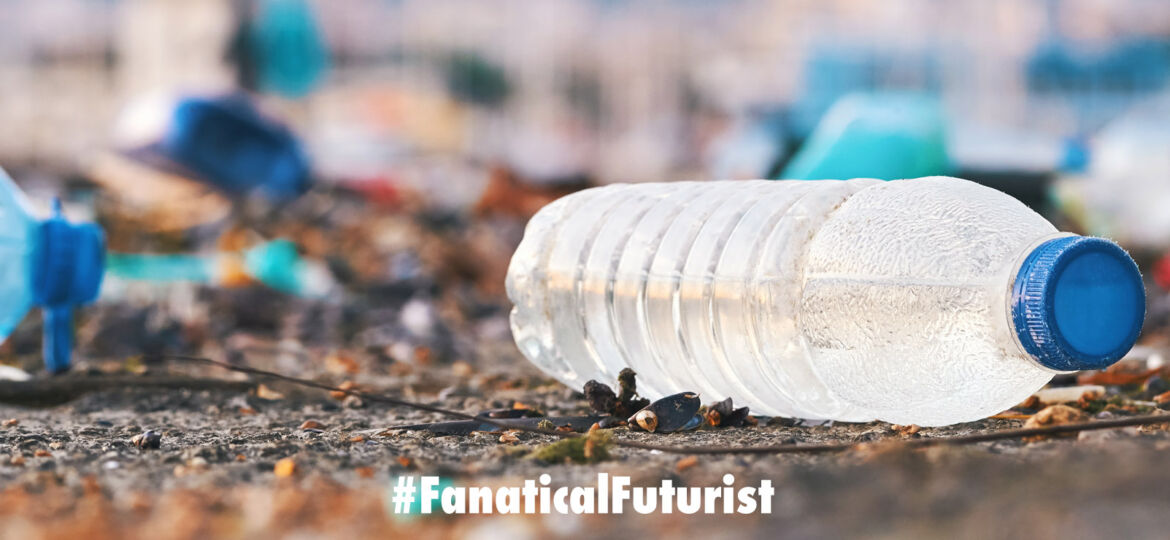
WHY THIS MATTERS IN BRIEF
Firstly AI creating new enzymes is a game changer that accelerates new product development, and secondly plastic is a scourge, so this breakthrough has a double whammy.
 Love the Exponential Future? Join our XPotential Community, future proof yourself with courses from XPotential University, read about exponential tech and trends, connect, watch a keynote, or browse my blog.
Love the Exponential Future? Join our XPotential Community, future proof yourself with courses from XPotential University, read about exponential tech and trends, connect, watch a keynote, or browse my blog.
Artificial Intelligence (AI) is getting inventive, so much so “it” was recently given a patent for inventing a bunch of boxes. That asides though it’s also been inventing everything from designer human genomes, faster AI chips, and rocket engines to cars, drugs, and even the occasional NASA rover. And now it’s inventing new things, like enzymes …
Unless you’ve been living under a rock you’ll know Earth has a plastics problem, and despite turning it into new trainers and even flavourings, discovering new enzymes in dumps that break it down and inventing new bio-degradable plastics there aren’t many great solutions at the moment to deal with the plastic waste we have.
Plastic is everywhere: food, toiletries, and cleaning products come encased in it; our toothbrushes and children’s toys and disposable coffee lids are made of it; and we carry groceries and dispose of trash in bags of it. It’s impossible to avoid. Yet we don’t often think about the fact that these items will still be around hundreds of years from now.
That’s right – your last toothbrush, the one you threw out a couple months ago and never thought of again, will still be slowly decomposing in a landfill in 100 years. Apply that same thought to all the plastic in your home, then all the plastic in the world, and… it’s a lot.
Part of why plastic is so useful is because it’s durable. The flip side is, it’s really hard to get rid of. A team of scientists from the University of Texas at Austin are working on a tool that might be able to help: an enzyme that can break down plastics in just a week – that is, plastics that would otherwise take centuries to fully degrade.
Polyethylene terephthalate, which thankfully is more widely known as PET, is a clear, strong, lightweight plastic; it’s also the chemical name for polyester. PET is most commonly used in food and beverage packaging. As such, this type of plastic accounts for 12 percent of all the plastic waste in the world, according to the paper the UT team published last week in Nature.
“One thing we can do is we can break this down into its initial monomers,” Hal Alper, an author on the paper, told Motherboard. “And that’s what the enzyme does. And then once you have your original monomer, it’s as if you’re making fresh plastic from scratch, with the benefit that you don’t need to use additional petroleum resources.”
Backing up a bit, a monomer is a molecule that binds to other molecules to form a repeating chain – a polymer. Depolymerization is the reverse process: breaking a polymer back down into its original molecular components. Those components can then be reused to make… new plastic.
It sounds a bit counter-intuitive; aren’t we trying to make less plastic? Until we find suitable replacements, unfortunately, making less isn’t much of an option, because people still need to buy detergent and juice and shampoo. But the UT team’s depolymerization method is essentially just a purer form of recycling – and an actual form of recycling, since only a fraction of what you throw in the blue bin with the arrows on it ends up getting recycled.
Enzymes that break down plastic can be found in naturally occurring bacteria, but they only do their plastic-eating work in highly specific temperature and pH environments. The UT team trained a machine learning algorithm to predict the positions of amino acids in protein structures, and tested different sequences to find one that worked at various temperatures and pHs.
The team dubbed the resulting enzyme FAST-PETase, which stands for “functional, active, stable, and tolerant PETase.” It’s able to break down 51 different varieties of plastic in non-specific temperature and pH conditions, and complete degradation took less than eight days across the board.
The next step is to figure out how to scale the process in an efficient and affordable way.
Similar to the climate crisis there won’t just be one solution to the world’s plastic problem. Whatever fixes we find, it’s equally important to start weaning ourselves off plastic by replacing it with viable and sustainable alternatives. But given that we already have mountains of the stuff, an enzyme that can break it down quickly sounds like a welcome tool.
















